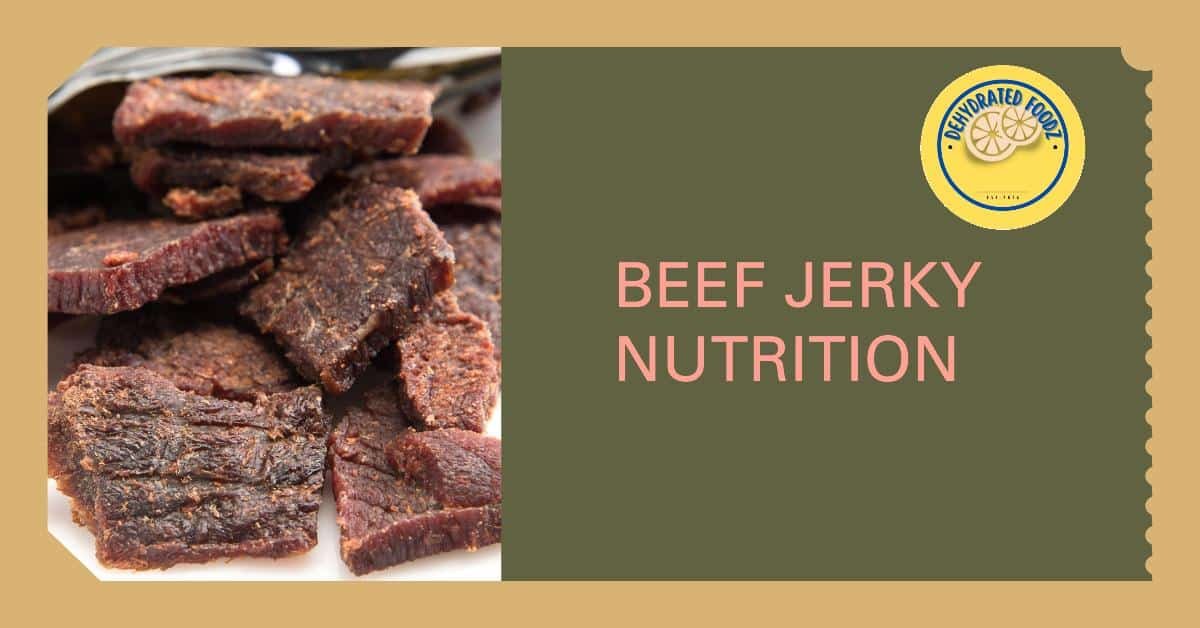Beef jerky has become a staple for many health-conscious individuals seeking a convenient, high-protein snack. But what exactly does beef jerky offer in terms of nutrition, and how can it fit into a balanced diet? In this comprehensive guide to beef jerky nutrition, we’ll explore its macronutrient content, health benefits, potential drawbacks, and tips for making informed choices. Whether you’re a fitness enthusiast looking to support muscle recovery or simply someone who enjoys a savory, on-the-go snack, understanding beef jerky’s nutritional profile is key to making it a healthy part of your lifestyle.
Introduction to Beef Jerky Nutrition
Beef jerky is more than just a tasty treat; it’s a nutrient-rich option for those looking to incorporate a high-quality protein source into their diet. It’s especially popular among individuals who are always on the move, such as athletes or outdoor enthusiasts who require sustaining energy sources.
Key Nutritional Components of Beef Jerky
Regarding beef jerky nutrition, protein is front and center, making it an excellent choice for repairing and growing muscles. Additionally, while beef jerky can be higher in fat, an insightful glance at the nutritional information label will help you select jerky with a heart-healthy fat profile. Though traditionally low in carbohydrates, some beef jerky varieties may have added sugars, an essential fact to note for those monitoring their carb intake.
Protein—The Building Block
Beef jerky is regarded for its high protein content, a critical building block for muscle repair and body maintenance. For active individuals and athletes, the protein in beef jerky supports recovery and muscle growth post-exercise.
Fat Content—Choose Wisely
Contrary to common belief, not all fat is detrimental to health. Beef jerky contains both monounsaturated and saturated fats. Health-conscious consumers should aim for options with beneficial fats and a minimal amount of unhealthy fats.
Carbohydrates—Low but Present
Beef jerky typically ranks low on the carbohydrate scale. This makes it a suitable snack for those following low-carb or ketogenic diets. Vigilance in avoiding options with excessive added sugars can keep it a healthier snack choice.
Vitamins and Minerals—An Unseen Benefit
Often overlooked, beef jerky is a valuable source of iron, zinc, B vitamins, and magnesium. These contribute to numerous bodily functions, including immune response, red blood cell formation, and energy metabolism.
Health Benefits of Beef Jerky
High-protein content gives beef jerky the edge as a healthy, low-fat snack suitable for muscle recovery and as a satiety-promoting supplement in weight management strategies. The sustained energy it provides is also ideal for maintaining endurance during intense physical activities.
Considerations for Sodium and Preservatives
The downside of beef jerky nutrition is its typically high sodium content. For those watching their salt intake, moderation is key. Similarly, preservatives are common, but opting for jerky with a cleaner ingredient list can alleviate some health concerns.
Incorporating Beef Jerky into a Balanced Diet
Balance is crucial. Pairing beef jerky with high-fiber, nutritious foods can offset its saltiness and fortify your diet. Adequate portion control can make beef jerky an enriching addition to a diverse eating plan.
Symptoms of Meat Allergy and Avoiding Beef Jerky:
If you experience a runny or stuffy nose, nausea, or a rash after eating meat, it could be a sign of a meat allergy. The American College of Allergy, Asthma, and Immunology identifies these as potential indicators. For those worried about meat allergies, consulting a healthcare provider is vital for personalized guidance and avoiding beef jerky as a precaution.
Homemade vs. Store-Bought
Making your beef jerky can offer control over ingredients and nutritional content—if you’re cautious and knowledgeable about the preparation process. Store-bought jerky can also be relatively healthy, provided you make discerning choices with regard to sodium and additive content.
In summary, beef jerky stands out as a beneficial snack for an active lifestyle when chosen carefully and consumed in moderation. The key takeaway is awareness and understanding—it’s about making purposeful decisions that align with your nutritional needs and personal health goals. By considering both the benefits and the drawbacks of beef jerky nutrition, you ensure that each bite supports your well-being and your taste for adventure.

